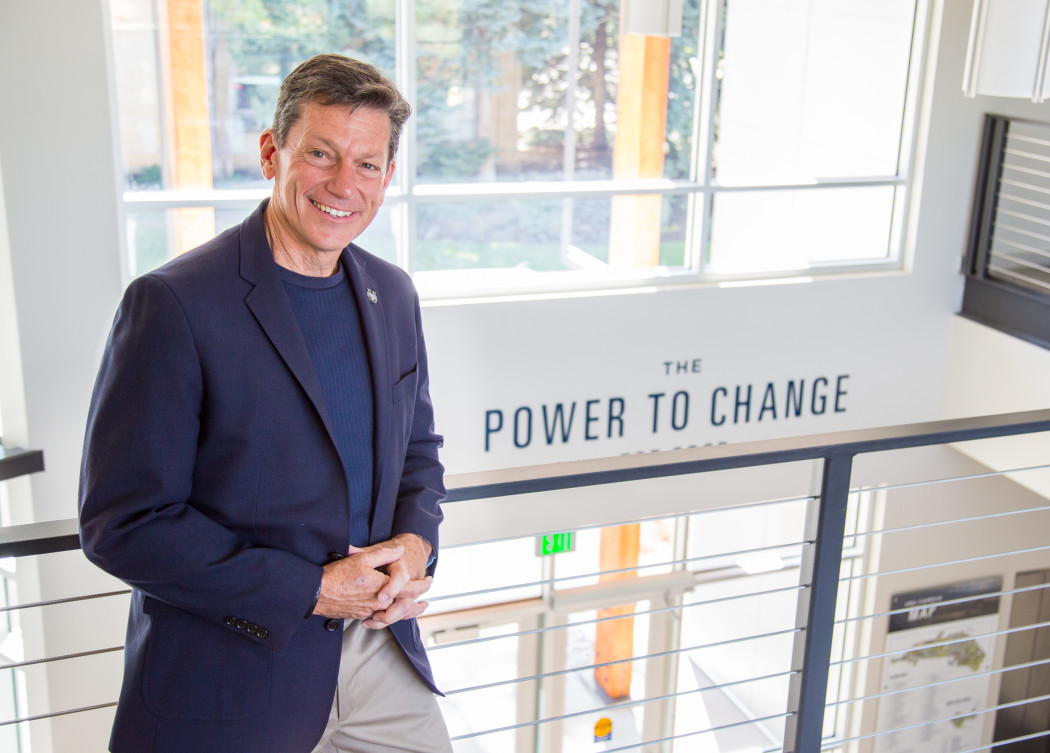Utah might be a swing state: How will that impact the traditionally one-party state?
According to many polls, splitting the Republican vote between Evan McMillan, Donald Trump and Jonathan Johnson might mean this is Utah’s first chance to break the long-time tradition and become a swing state.
But will the possibly broken tradition of voting Republican funnel down to local politics?
Utah State University’s democrat David Clark, the associate vice president for advancement and alumni relations at Utah State University, is running against Rep. Curt Webb for the District 5 seat.
Webb has represented District 5 since January 1, 2009. He has run unopposed for three of the last four elections. But during the election in 2010, he was challenged by Democratic nominee Paige Pagnucco. Webb won by 84 percent.
Clark said this election cycle is unique on the national level, but he thinks it won’t really impact local-level politics.
“There may be more people who will ask themselves, who’s really on the ballot?” he said. “What are my alternative choices? How far down that goes, who knows? It’ll be interesting to see. Perhaps.”
Out of the four legislative races in Cache Valley, District 5 is the only contested seat. The rest are unopposed Republicans.
“It’s crazy,” he said. “It doesn’t serve democracy when you can’t have a couple of choices on the ballot. A lot of people in a lot of countries get to vote, but they only get to vote for one name and that’s not democracy.”
Clark said he is distressed by the politicians’ inability to try to craft evidence-based, reasonable solutions instead of just taking the party position and not considering any other alternatives.
“I would like to find ways to be moderate, cooperative, collaborative, to find wise, sustainable solutions,” he said. “And a chance to have a view of problems that isn’t just based on the Republican Party’s predetermined positions.”
Out of the 76 legislators in Utah, 12 are Democrats.
“There are some in certain areas where there’s enough diversity for them to be taken seriously. But in the state at large, it’s clearly a problem.”
Clark said he believes Utah’s one-party state is rooted in the state’s culture. The culture in Utah tends to not accept the status quo, Clark said, which is defined by conservative, Republican politics.
“I don’t necessarily mean to say that’s a bad thing, per se, but it limits thinking and it’s reflected in the fact that we have a one-party state and it’s not healthy,” he said. “Debate is limited, inclusivity is limited, and in my opinion, that’s not healthy.”
Clark said if he was elected, he would be committed to finding wise solutions by listening to his constituents and engaging with the public.
“Most importantly, I think what people should expect from their legislator is someone who is willing to craft solutions to problems that include, as much as possible, all sides of the argument.”
Clark has been a member of the Aggie community for the last eight years. He began teaching in the Huntsman School of Business in Fall of 2008. He was then the director of the entrepreneurial programs for three years.
“I love my time at USU,” he said. “It’s a great place to be to be in fulfillment of a lot of ambitions for me personally in a lot of ways.”
This is Clark’s first time running for the Utah Legislature, but it isn’t his first election. He ran against Teryl Warner as a candidate for the Utah State Board of Education. Warner won in a close election.
Clark received a master’s degree in agronomy from the University of Illinois in crop science. He also received an MBA from the University of Utah. He began by working in the agro-biotech industry and later switched to human biotech. He was the vice president of operations and corporate communication and investor relations for NPS Pharmaceuticals, chief executive officers for Prolexys Pharmaceuticals. He was involved with the Utah Life Science Association, which has evolved into the Utah Tech Council, where Clark sits on the Board of Trustees. He also sat on Governor Gary Herbert’s Science Advisory Council.
— morgan.pratt.robinson@gmail.com

